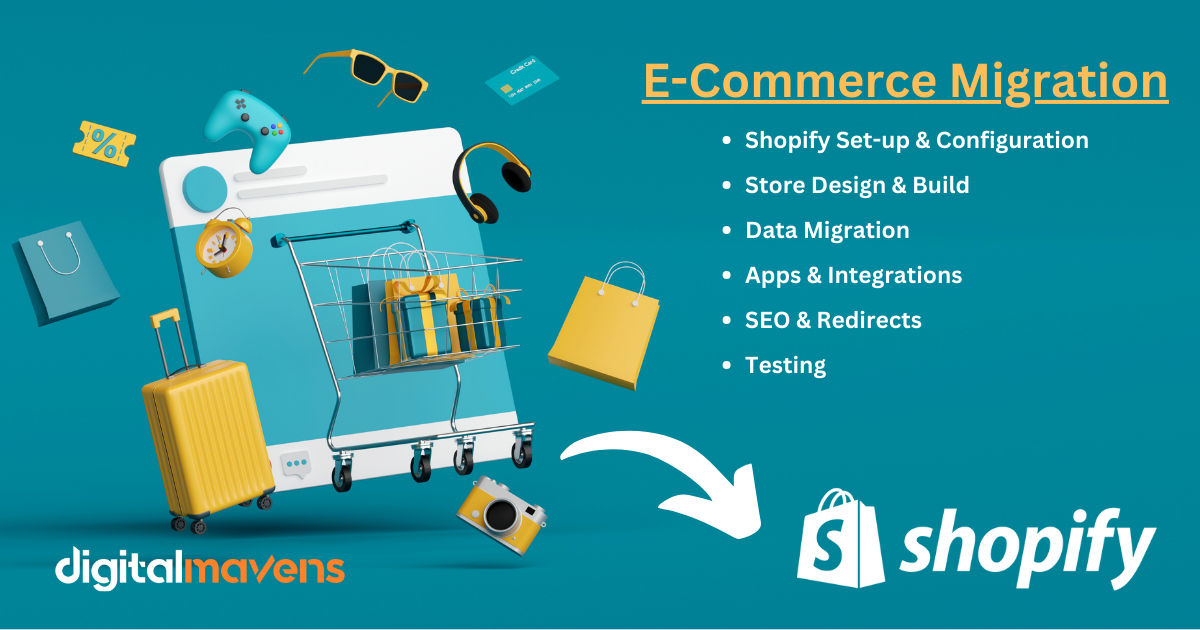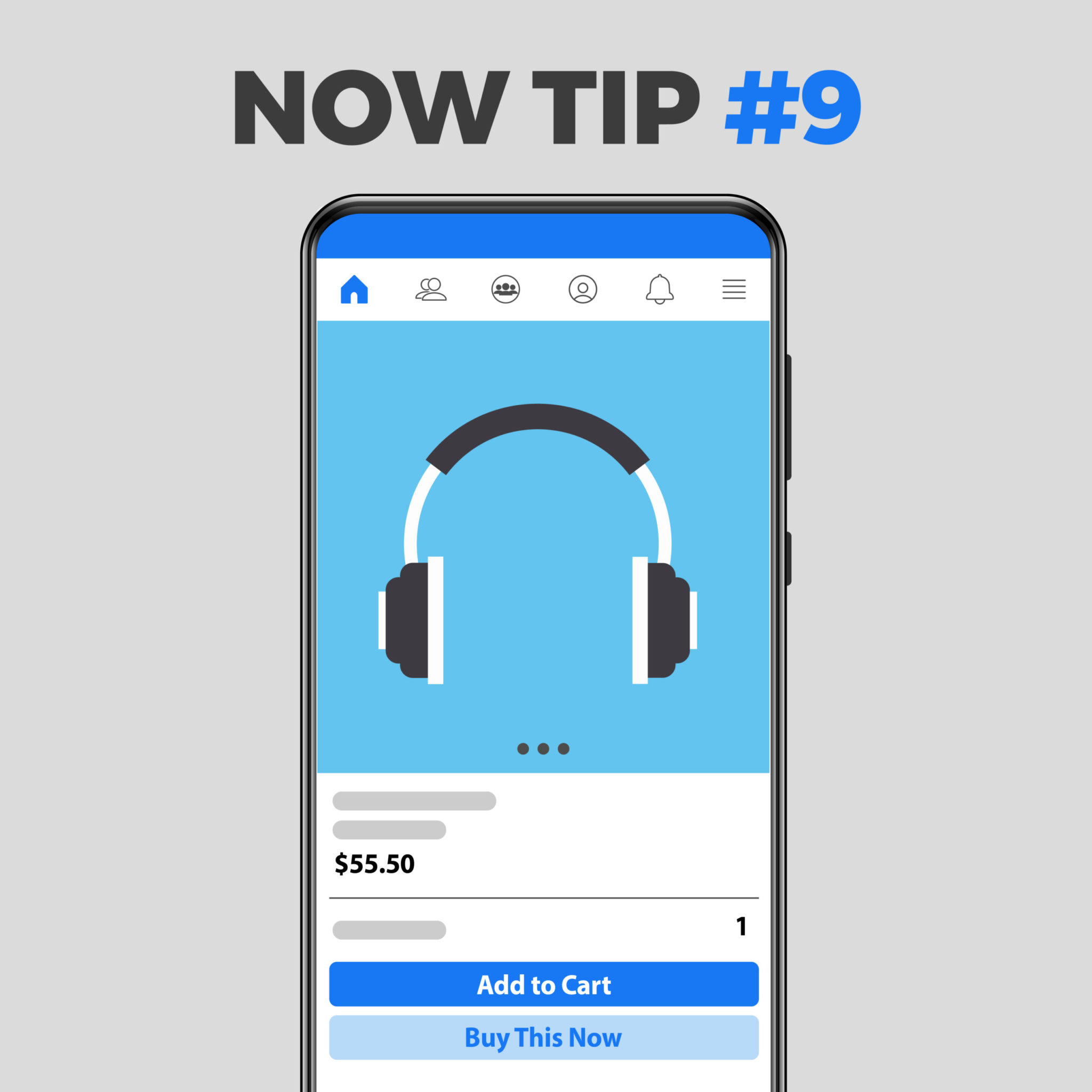Considering A Shopify Migration in 2024?
With just under 4-months until Black Friday and Cyber Monday (BFCM), and the start to the traditional Christmas Shopping period, now is the time to ensure your e-commerce platform is ready to handle the end-of-year shopping surge. If your online business is experiencing any of the following issues, it might be time to consider a Shopify migration:
- Lost Sales Due to Poor Onsite User Experience: Are customers leaving your site frustrated because it’s hard to navigate, they can’t find the products they want, or it’s difficult to checkout and pay?
- Lack of System Integration: Are your business systems disconnected from your e-commerce site, leading to manual processes that cause inefficiencies and errors?
- Inability to React to Customer Demands: Are you struggling to adapt quickly to customer needs or market trends?
- Untracked Analytics: Without proper analytics, do you know which ads are driving sales or which categories are attracting the right customers?
- Stock and Delivery Challenges: Is managing inventory, fulfilling orders, and organising deliveries becoming a nightmare?
- Customer Service Issues: Are customer inquiries slipping through the cracks due to inadequate support tools?
- Missed Opportunities for Customer Retention: Are you unable to nurture customers with email campaigns that encourage repeat purchases? Do you know who your best customer segments are?
- Performance Problems: Are slow load times and technical glitches costing you sales?
- Slow Development Cycles: Does it take months, rather than weeks or days, to deploy essential updates, fixes, or new functionality?
- Improper Site Setup: Is your site not optimised for performance, security, or user experience?
If these challenges sound familiar, it’s time to seriously consider migrating to a different e-commerce platform or enhancing your current one.
Why We Recommend Shopify as the Best E-Commerce Platform
At Digital Mavens, we’ve worked with a wide range of e-commerce platforms, including BigCommerce, WooCommerce, Salesforce Commerce Cloud, Magento, and UltraCommerce. From our extensive experience, we can confidently say that Shopify is the best choice for most businesses looking to build or scale their online presence. Here’s why:
1. Ease of Use
If a platform is easy-to-use, you’re more likely to leverage its full potential. Shopify’s user-friendly interface makes managing and updating your e-store simple. You can easily modify functionality and features without requiring a large team or technical expertise. Plus, there are plenty of themes and apps to choose from, saving you from having to build everything from scratch. Shopify also simplifies the checkout process and is constantly innovating to improve user experience.
2. Speed of Change
Shopify allows you to implement changes quickly. Whether you’re launching a new product or responding to market demands, you can do it in days, not months – sometimes even minutes. With Shopify, your e-commerce manager can handle many updates in-house, reducing the need to outsource to technical support.
3. Managed Site Performance
With Shopify, you don’t have to worry about uptime, load balancing, or scalability – Shopify handles all of this for you. This ensures your site performs optimally, even during peak traffic periods like BFCM and other promotional periods.
4. Security and Compliance
Shopify is PCI DSS compliant, offering top-notch security for payment processing and customer data. This protects your business from breaches and ensures customer trust. Shopify also enables automated processes to reduce chargebacks and prevent fraudulent purchases.
5. Seamless Integration
Shopify easily integrates with various business systems and platforms, including ERP, WMS, OMS, customer service tools, and analytics. This interconnectedness streamlines your operations and enhances efficiency.
6. Focus on Your Business
With Shopify handling the technical heavy lifting, you can focus on what really matters: driving sales, finding and engaging customers, optimising your product catalogue, and growing your profit margins.
Considering a Move to Shopify? Here’s What You Need to Know About A Shopify Migration
If you’re thinking about switching from your current e-commerce platform to Shopify or Shopify Plus, we’re here to help. E-commerce migrations can seem daunting, but with the right planning and execution, it can be a smooth process. Here are some of the key steps to consider:
1. Your E-commerce Migration Timeline
Most Shopify migrations take about 3 months. For example, we recently completed a comprehensive migration for Toys R Us in just three months. This involved migrating from OSCommerce to Shopify Plus, redesigning and building the store, integrating with MYOB, installing multiple feature apps, migrating email marketing from MailChimp to Klaviyo, transitioning customer service from OSTicket to Gorgias, handling data migration, and conducting thorough testing.
2. Evaluating Your Current Needs
Assess what functionality, features, and requirements are essential for your new Shopify store. Identify what’s missing from your current platform that you need in your new Shopify setup.
3. Understanding Your Customers’ Needs
What do your customers want for an enjoyable and repeatable shopping experience? Ensure your new onsite experience is designed with them in mind, enhancing their journey, solving their shopper missions and encouraging purchases.
4. Supporting Your Staff
Evaluate what your internal team needs to do their jobs efficiently and effectively. The right tools can positively impact productivity, efficiency, and job satisfaction. Adding Shopify apps could help to improve your internal processes.
5. Data Migration
Carefully plan the migration of product data, customer records, historical orders, financial data, and marketing assets. This step is crucial to ensuring a seamless transition to the new Shopify store and the ability to make sales once launched.
6. Store Design, Customisation, and Configuration
Tailor your Shopify store to reflect your brand, align with your marketing and sales objectives, and support your operational setup and business goals. Migrations onto a new e-commerce platform are a great opportunity to ensure your new store design prioritises user experience and scalability, allowing for future growth and adaptability as your business evolves.
7. Integration with Business Systems
Review all your e-commerce platform integrations with your business systems, like ERP, WMS, OMS, customer service platforms, and analytics tools. Are they all integrated? If not, take the migration opportunity to bring everything together with your e-commerce migration to Shopify. Correct integration will streamline your operations, reduce manual processes, and provide real-time data insights that can drive more informed decision-making and enhance overall efficiency.
8. Testing and Launch
Rigorous testing is essential before going live with your new Shopify store. Make sure you have allowed time to test, have documented processes, and have a cross-functional team to test every part of the process before going live. Consider testing across different devices and browsers to ensure consistent performance and usability, make real-life orders and refunds, and have a contingency plan in place to quickly address any unexpected issues post-launch.
9. Ongoing Optimisation
Post-launch, make sure to continue monitoring and optimising your new Shopify store to adapt to customer feedback, behaviours, sales results and changing market conditions. At Digital Mavens, we don’t just launch and leave; we can also provide ongoing support to ensure growth and success until you’re confident enough to build your own internal team.
Need More Information or Advice Before Migrating? Let’s Chat
If you’re ready to explore migrating to Shopify but need more advice or information, we’d love to help. Schedule a time to Speak to the Chief about your e-commerce needs and challenges. With our expertise, we can ensure your migration is smooth and that your new Shopify store is set up for success – just in time for BFCM and end-of-year sales opportunities.
Let’s make sure your business is ready to thrive this season and beyond.
Find Out More About How We Can Help You With Your E-Commerce Growth
Checkout out our e-commerce services, Ecommerce Copilot Program and Shopify Virtual Shopping pages.
Categories
- Content (5)
- Customer Service (2)
- Design (4)
- Digital Marketing (18)
- Ecommerce (27)
- General (1)
- Shopify (3)
- Strategy (23)
- Tech (3)
- Websites (17)




